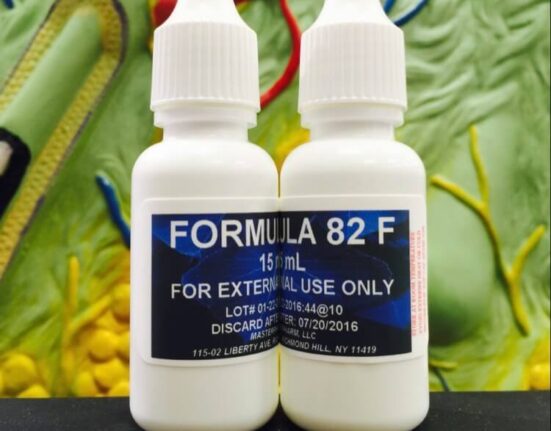In a drug test, a laboratory specialist looks for illegal or prescription drugs in either a person’s sweat, urine, blood, or hair. The most common drug screening type includes urine testing. The most often tested drugs include; cocaine, steroids, marijuana, opioids like codeine, heroin, hydrocodone, morphine, fentanyl, phencyclidine, barbiturates like phenobarbital, and secobarbital. Other terms used for drug tests include; drug screen, drug of abuse testing, toxicology screening, substance abuse testing, and sports doping tests.
The most prominent types of drug testing are hair, urine, blood, and saliva. However, the most common and mandated specimen is urine. Urine is mainly used in regulated drug tests like the ones conducted by the U.S Department of Transportation. The disadvantage of urine testing is that it has a shorter detection window than other types like the hair drug test. With urine tests, drug components are detected between five to ten days, while the hair drugs tests detect alcohol or drug use for approximately 90 days.
Blood testing does not have a short detection time, but the disadvantage is that it is more invasive and costly. Another specimen in this group is the saliva test, also called the oral fluid test. It is a less-invasive test with a seven to twenty-one hours shorter detection time. The period is way shorter than that of urine. A situation may occur such that an employee may undergo or any person required to provide a urine sample refuses, probably because of privacy issues. Some cases may require that a professional lab avail themself during urine collection because of cheating. The saliva drug test will be an effective alternative in such a case. If you have some time before your drug test, you can try detoxing. Checkout Certo Detox review for more.
What is a Drug Test used for?

Image Source: https://cdn.pixabay.com/photo/2013/11/20/23/01/test-214244__340.jpg
The screening for drugs usually is helpful for many different reasons, mainly to find out if a person has taken some drugs or not. Some of the common reasons include;
Sports Organizations
Collegiate and professional athletes are typically required to test to determine if they have used some performance-enhancing drugs or other substances. Sports competitions, especially international sports, are generally severe, with testing and screening for any indication of substance use to aid performance.
Employment
Some employers demand to test for drugs before and after hiring to check if an employee has used on-the-job drugs. Many workplaces have drug testing policies for pre-employment and such screening is compulsory and required by law. After making a conditional employment offer, behavioral and drug testing is carried out. Applicants are informed in writing about the substance abuse policy of the organization and the procedures of drug screening.
The legality of Employee Drug Testing

Image Source: https://cdn.pixabay.com/photo/2013/11/20/23/00/test-214185__480.jpg
The legality of drug testing varies from one state to another. In that case, employees should undertake consultations with legal counsel if they have questions concerning the compliance of their testing programs with the state regulations. Some general practice guidelines could assist.
- An applicant should have advanced knowledge that pre-employment drug testing is part and parcel of the new employee screening process.
- People applying for the same job should also undergo similar drug testing.
- Drug tests need to be administered in a state-certified laboratory.
For the monitoring of Opioid Use
Suppose a prescription for opioid use has been granted as remedies for chronic pain. In that case, the responsible health care provider might order some drug tests to ensure that you take the correct number of opioid medications.
For Medical Purposes
In some instances, cocaine drug testing is conducted to confirm a diagnosis and the management of care. The use of cocaine could result in mental, physical, and behavioral disturbances like paranoia, irritability, anxiety, hallucinations, delusions, and tachycardia, which mimic psychiatric disorders. In that case, the use of cocaine should be considered in the differential diagnosis. For patients presenting withdrawal or overdose symptoms, cocaine testing is necessary for differentiating cocaine from other abusive drugs.
What Goes on During a Drug Test?
Generally, a drug test will require you to provide a urine sample in a laboratory. In that case, some instructions might be needed for a “clean-catch” sample. The methods for cleaning catch include the steps below;
- Clean your hands
- Thoroughly wash your genital area using a cleansing pad provided by your provider. For men, they need to wipe the tip of their penis, while women are required to open their labia and clean up their labia from the front to back.
- Start urinating in a container or a toilet.
- After that, move the collection container under the stream of your urine.
- At least an ounce or two of urine should then be collected. You should then place markings on the urine containers to indicate the amounts of urine collected.
- Finish urinating
- Take the sample container to the laboratory technician or a healthcare provider for examination.
Some circumstances may require that a healthcare provider or lab technician present themselves as you collect your urine sample. Urine sample collection differs from other collection methods like blood tests for drugs. A blood test will require that you go to a lab for some blood samples to be extracted. During a test, a health care professional will extract a blood sample from a blood vessel like a vein in your arm with a small needle. After the needle insertion, a small amount of blood is collected and put into a test tube or a vial.
Final Thoughts
Since most institutions and organizations have regulations banning the intake of drugs and substances, drug testing has become a norm. Whether you participate in some critical sport or are part of a crucial program, you will, at one point or another, need to be tested for some drug intake. With that in mind, it would be prudent to become careful about the kind of drugs you ingest since it could be your nightmare in the future. Imagine having to miss employment opportunities because you failed some drug test? However, it is fortunate that laws concerning employment and drug screening have been adjusted to be more lenient.
If you test positive for some legal drugs that your doctor prescribed, your potential employer does not have the right to penalize you for the positive results if the drug does not affect your ability to perform well in your job.







5 Comments